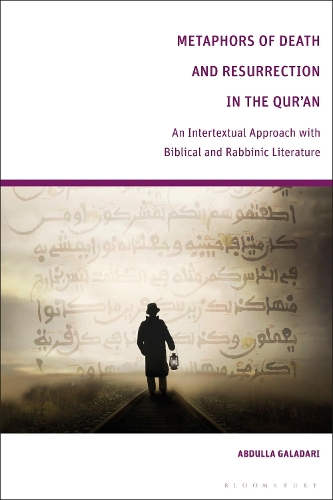
Metaphors of Death and Resurrection in the Quran: An Intertextual Approach with Biblical and Rabbinic Literature
(Hardback)
Available Formats
Publishing Details
Metaphors of Death and Resurrection in the Quran: An Intertextual Approach with Biblical and Rabbinic Literature
By (Author) Abdulla Galadari
Bloomsbury Publishing PLC
Bloomsbury Academic
7th October 2021
United Kingdom
Classifications
Tertiary Education
Non Fiction
The Koran (Quran)
Christianity
Criticism and exegesis of sacred texts
297.1226
Physical Properties
Hardback
272
Width 156mm, Height 234mm
558g
Description
Through extensive textual analysis, this open access book reveals how various passages of the Quran define death and resurrection spiritually or metaphorically. While the Day of Resurrection is a major theme of the Quran, resurrection has largely been interpreted as physical, which is defined as bones leaving their graves. However, this book shows that the Quran sometimes alludes to death and resurrection in a metaphoric manner for example, rebuilding a desolate town, typically identified as Jerusalem, and bringing the Israelite exiles back; thus, suggesting awareness and engagement with Jewish liturgy. Many times, the Quran even speaks of non-believers as spiritually dead, those who live in this world, but are otherwise zombies. The author presents an innovative theory of interpretation, contextualizing the Quran within Late Antiquity and traces the Quranic passages back to their Biblical, extra-biblical and rabbinic subtexts and traditions. The ebook editions of this book are available open access under a CC BY-NC-ND 4.0 licence on bloomsburycollections.com.
Reviews
This innovative and thought-provoking work uses the method of intertextual polysemy to uncover the richness of the Qurans references to death and resurrection. Abdulla Galadari carefully analyses the Qurans Biblical subtext and its theological strategies. He thereby uncovers new meanings in Islams scripture. A must-read for students and scholars of the Quran and the Bible. * Gabriel Said Reynolds, Crowley Professor of Islamic Studies and Theology, University of Notre Dame, USA *
In both method and content, this important book reads the Quran within its broader religious background, both diachronically and synchronically. It will set new standards and fresh challenges to comparative research, for both Quranic and late antique studies. * Guy G. Stroumsa, Martin Buber Professor Emeritus of Comparative Religion, The Hebrew University of Jerusalem, Israel and Professor Emeritus of the Study of the Abrahamic Religions, Oxford University, UK *
This is the first detailed monograph study of death in the Quran. Galadari has done Quranic studies a great service. This book is a must-read. * Walid Saleh, Professor, University of Toronto, Canada *
Abdulla Galadari treats a well-known topic through a new and innovative lens that opens up a fresh approach to reading the Quran. * Reuven Firestone, Regenstein Professor in Medieval Judaism and Islam, Hebrew Union College, USA *
Author Bio
Abdulla Galadari is an Associate Professor at Khalifa University of Science & Technology, United Arab Emirates. He is the author of Quranic Hermeneutics: Between Science, History, and the Bible (Bloomsbury, 2018).
